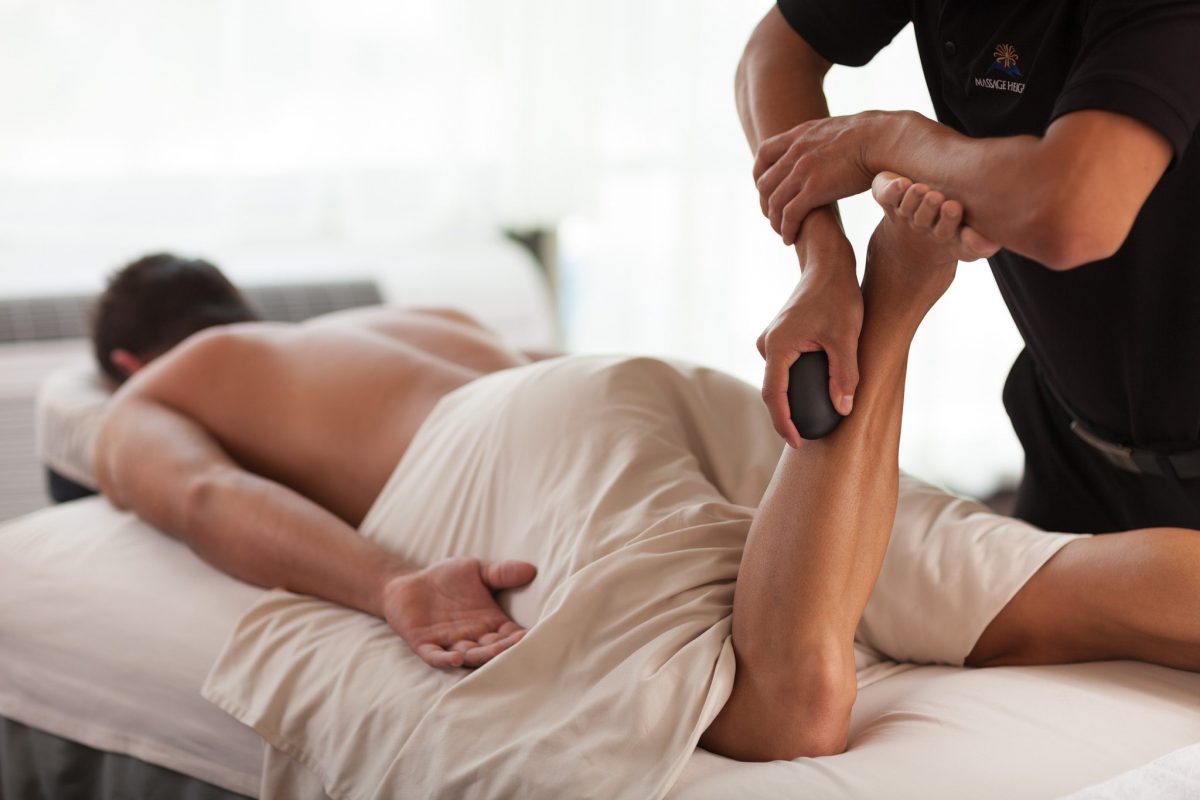Almost everyone loves a good massage. Whether you’re an elite athlete or just have aching muscles, getting a massage feels great. But is there any scientific evidence supporting the use of massage or is it simply something that feels good? It turns out, the two go hand in hand!
In the past it was thought that massage helped speed recovery from exercise by “flushing out” our muscle tissue and thereby speeding the removal of lactic acid after exercise. However, research on this is equivocal and some research even suggests that massage can decrease the rate of lactic-acid removal by reducing blood flow to the tissues.
But there are aspects of massage therapy other than lactate removal. Research at McMaster University found that, despite not having an effect on lactate or glycogen levels, it decreased inflammatory markers and cellular stress following exercise. Reduced muscle soreness and decreased inflammation may therefore be the biological mechanism that explains why most people report feeling better and more recovered after a massage. However, people might feel better after a massage simply because it feels good!
It appears that massage is very powerful at decreasing stress. Research has shown that physiological markers of stress decrease immediately after onein a variety of populations. For example, researchers at the University of Miami School of Medicine reviewed the use of massage therapy on people with depression, chronic pain, auto-immune conditions, and various causes of stress. The researchers found that on average, massage therapy decreased cortisol levels by 31%. Cortisol is one of the hormones associated with the stress response, and while beneficial in the short term, can be harmful if chronically elevated. They also found that massage therapy increased levels of serotonin and dopamine (by 28% and 31% respectably), two feel-good chemicals that are associated with improved mood and satisfaction. A more recent study found that massage can be useful in reducing pain and anxiety during medical treatment in female veterans who have experienced stress, depression, and pain.
So yes, massage feels good. But these good feelings extend to the body and have been shown to have lasting beneficial effects. So treat yourself every once in a while knowing that you’re doing something good for your mind and body 🙂
Author Bio
Greg Wells is the CEO and founder of Wells Performance, a global consulting firm on a mission to elevate how we live our lives at work and in life. He has worked with some of the highest-performing individuals on the planet, including Olympic and world champions and elite organizations including General Electric, BMO, Deloitte, KPMG, BMW, Audi, Sysco Foods, YPO and Air Canada. He is also committed to inspiring children and young adults, working with school boards and independent schools around the world.








